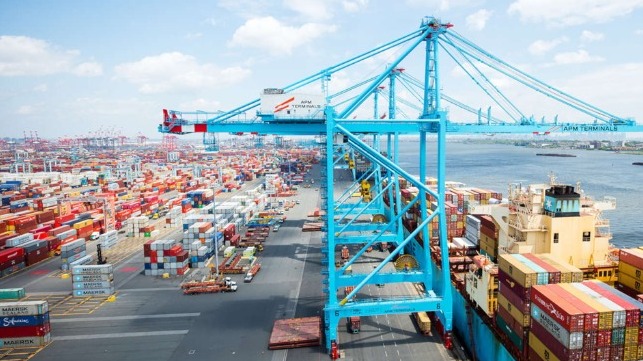APM Terminals Forms Alliance with China’s ZPMC for Terminal Automation

APM Terminals, which operates terminals in 76 ports worldwide, announced that it is forming a strategic alliance with China’s ZPMC (Shanghai Zhenhua Heavy Industries Company) focusing on the joint development and deployment of a wide range of automated solutions, including automated container handling equipment.
APM, which is part of A.P. Moller Maersk operating terminals in major ports including Los Angeles and the Port of NY/NJ, said the alliance will change equipment purchasing from a purely transactional process to a more strategic collaboration with a strong focus on automation.
“With this alliance, we are leveraging our 23 year-long relationship more effectively, in which APM Terminals demonstrates strong commitment towards ZPMC and in return receives prioritization of factory capacity, access to the best resources, active involvement in product development according to our needs and a commitment to maintain the relationship on a long-term basis,” said APM Terminals CEO Morten Engelstoft.
APM believes that the common industry practice of transactional customer-supplier relationships has proven less effective in complex automation deployments that require a more integrated approach with the supplier.
ZPMC’s automated equipment is already in operation in several of APM Terminals’ facilities, including at Vado Ligure (Italy), Lazaro Cardenas (Mexico), and its latest automated terminal in Tangier (Morocco). Most recently, the company is also running a pilot with ZPMC’s Automated Straddle Carriers in its Aarhus (Denmark) location.

that matters most
Get the latest maritime news delivered to your inbox daily.
The agreement also includes an order for 18 Ship-to-Shore (STS) Cranes and nine Yard cranes across six terminals and the reservation of production slots for additional 25 STS cranes and 62 Yard cranes in the future.
As well as the automation focus, the companies also expect the new framework to create closer collaboration in areas like safety, supply chain, and decarbonization.
